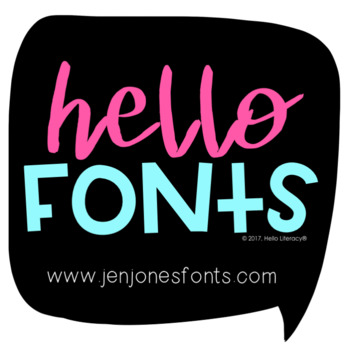Typography – if used elegantly – can greatly enhance the look and feel of just about anything that involves letter, numbers or characters. For example, custom fonts can form a great logo, as well as offer a more valuable and tailored feel to the piece of work. Forget logos, even changing the default fonts on your operating system can create a unique everyday computing experience.
We’ve already published a tutorial on installing new fonts on Windows. The process is easier and more streamlined on Mac OS X. This guide will tell you exactly that.
Oct 03, 2020 How to install the new fonts on Mac Turn off all applications. Microsoft Word, Powerpoint, Photoshop, Illustrator everything you are opening, turn it off. Because, when you reopen, the new fonts can be installed and available to use on these applications. Feb 09, 2020 Download a new font on the internet. Find the file in your Downloads folder (or wherever you send items you download) and double-click it. If the item downloads as a zip file, double-click it to expand, and then double-click again to open it. Sometimes the default fonts supplied in the latest version of Windows 10 just don’t cut it. Times New Roman and Arial fonts are timeless, but maybe you want something with a little more pizzazz.

Here’s how you go about downloading fonts.
1. Download the Font
There are a ton of free fonts out there. Sites such as Smashing Magazine have lists upon lists of free fonts that are available for personal or commercial use.
Here are a variety of neat font collections to check out:
- 80 Newest Free Fonts for Web Graphic Designers
- Font Squirrel
- Behance
- Font Fabric
- 30 New Free High-Quality Fonts
2. Extract the Font
Usually, the font comes in a .zip or .rar file. This means you’ll need a program to extract it. I use the Free Stuffit Expander. Once you do that, a new Finder window will pop up. Double click the .ttf or .otf file, and the Font Book application should automatically open.
3. Install the Font
Once the Font Book application opens, you can simply Install the font.
4. Organize your Fonts
Font Book automatically sorts out your fonts according to either default installation or user installation. This is a great feature, as it allows you to quickly go through your custom installed fonts. If you’re a typography enthusiast, this definitely is the key.
Font Book can be accessed within the Applications folder, or simply type it into Spotlight to find it.
You don’t need to re-open an application, as the font collection updates on the fly. For example, if you have Photoshop open and you’ve just installed a font, you can simply go back into Photoshop and select the font.
Fonts are very fun to implement and select, and are very easy to use! Don’t be afraid to try out new fonts for different uses, and have fun with your fonts. 🙂
The above article may contain affiliate links which help support Guiding Tech. However, it does not affect our editorial integrity. The content remains unbiased and authentic.Also See#Fonts #OS X
Did You Know
You can pin the Recycle Bin on the Start menu in Windows 10.
More in Mac
How To Download New Fonts For Word Mac Free
Top 4 Ways to Fix Mac Desktop Icons Missing or Not Showing
Install fonts
Double-click the font in the Finder, then click Install Font in the font preview window that opens. After your Mac validates the font and opens the Font Book app, the font is installed and available for use.
You can use Font Book preferences to set the default install location, which determines whether the fonts you add are available to other user accounts on your Mac.
Fonts that appear dimmed in Font Book are either disabled ('Off'), or are additional fonts available for download from Apple. To download the font, select it and choose Edit > Download.
:max_bytes(150000):strip_icc()/LW2-5b76c9b546e0fb002c955958.jpg)
Disable fonts
You can disable any font that isn't required by your Mac. Select the font in Font Book, then choose Edit > Disable. The font remains installed, but no longer appears in the font menus of your apps. Fonts that are disabled show ”Off” next to the font name in Font Book.
Remove fonts
You can remove any font that isn't required by your Mac. Select the font in Font Book, then choose File > Remove. Font Book moves the font to the Trash.
Learn more
How To Download New Fonts For Word Mac Free
macOS supports TrueType (.ttf), Variable TrueType (.ttf), TrueType Collection (.ttc), OpenType (.otf), and OpenType Collection (.ttc) fonts. macOS Mojave adds support for OpenType-SVG fonts.
Add Font To Word Mac
Legacy suitcase TrueType fonts and PostScript Type 1 LWFN fonts might work but aren't recommended.